N. Sato
Accelerating Markov Chain Monte Carlo sampling with diffusion models
Sep 04, 2023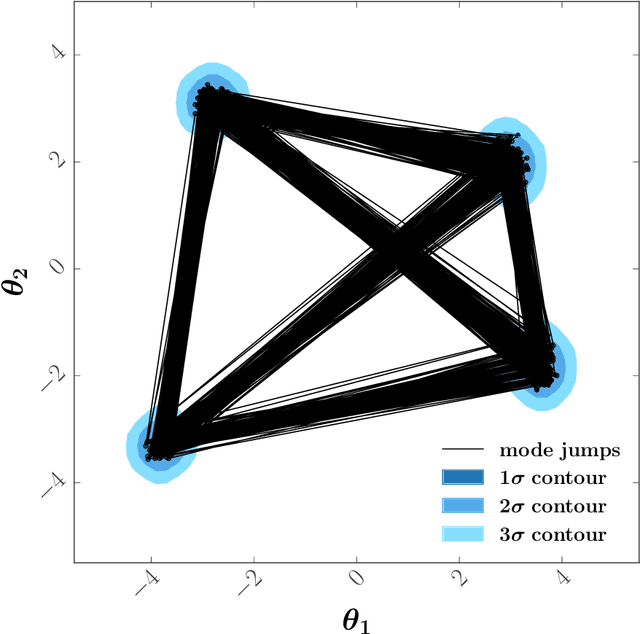
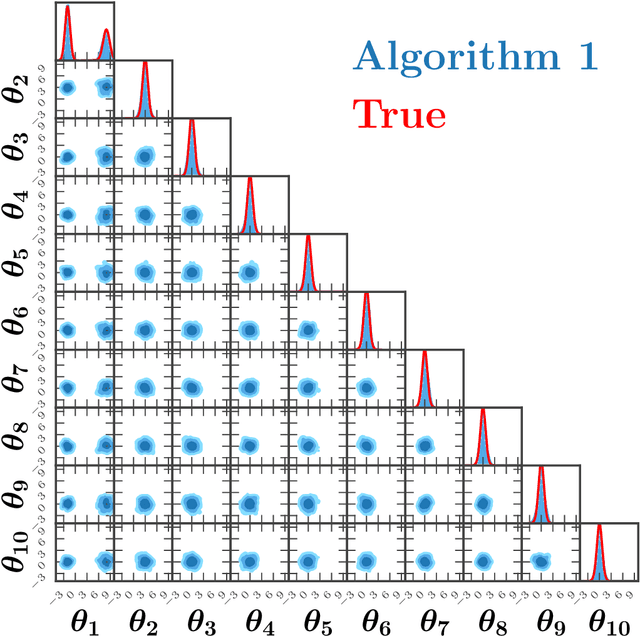
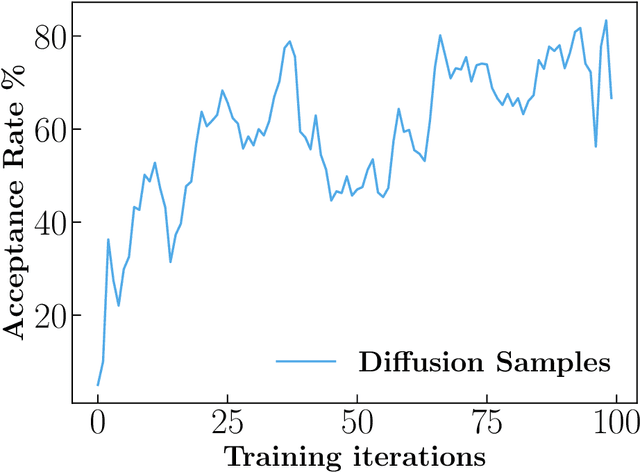
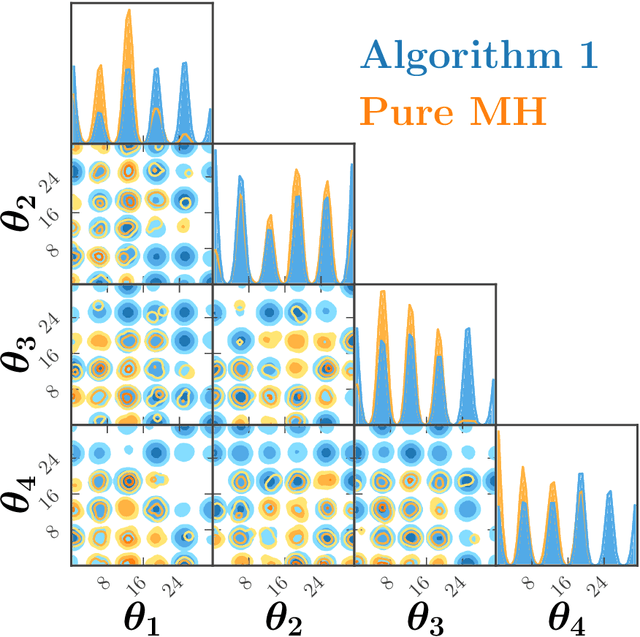
Abstract:Global fits of physics models require efficient methods for exploring high-dimensional and/or multimodal posterior functions. We introduce a novel method for accelerating Markov Chain Monte Carlo (MCMC) sampling by pairing a Metropolis-Hastings algorithm with a diffusion model that can draw global samples with the aim of approximating the posterior. We briefly review diffusion models in the context of image synthesis before providing a streamlined diffusion model tailored towards low-dimensional data arrays. We then present our adapted Metropolis-Hastings algorithm which combines local proposals with global proposals taken from a diffusion model that is regularly trained on the samples produced during the MCMC run. Our approach leads to a significant reduction in the number of likelihood evaluations required to obtain an accurate representation of the Bayesian posterior across several analytic functions, as well as for a physical example based on a global analysis of parton distribution functions. Our method is extensible to other MCMC techniques, and we briefly compare our method to similar approaches based on normalizing flows. A code implementation can be found at https://github.com/NickHunt-Smith/MCMC-diffusion.
Artificial Intelligence for the Electron Ion Collider (AI4EIC)
Jul 17, 2023Abstract:The Electron-Ion Collider (EIC), a state-of-the-art facility for studying the strong force, is expected to begin commissioning its first experiments in 2028. This is an opportune time for artificial intelligence (AI) to be included from the start at this facility and in all phases that lead up to the experiments. The second annual workshop organized by the AI4EIC working group, which recently took place, centered on exploring all current and prospective application areas of AI for the EIC. This workshop is not only beneficial for the EIC, but also provides valuable insights for the newly established ePIC collaboration at EIC. This paper summarizes the different activities and R&D projects covered across the sessions of the workshop and provides an overview of the goals, approaches and strategies regarding AI/ML in the EIC community, as well as cutting-edge techniques currently studied in other experiments.
A survey of machine learning-based physics event generation
Jun 01, 2021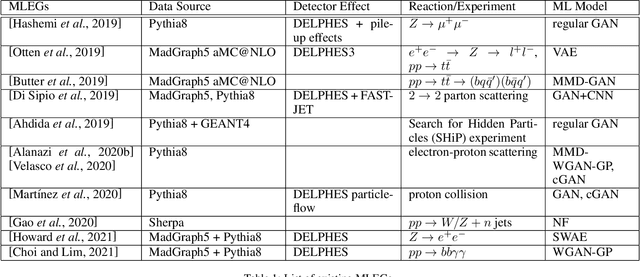

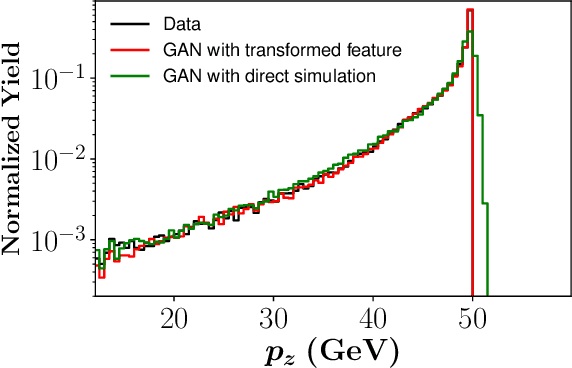
Abstract:Event generators in high-energy nuclear and particle physics play an important role in facilitating studies of particle reactions. We survey the state-of-the-art of machine learning (ML) efforts at building physics event generators. We review ML generative models used in ML-based event generators and their specific challenges, and discuss various approaches of incorporating physics into the ML model designs to overcome these challenges. Finally, we explore some open questions related to super-resolution, fidelity, and extrapolation for physics event generation based on ML technology.
Simulation of electron-proton scattering events by a Feature-Augmented and Transformed Generative Adversarial Network (FAT-GAN)
Jan 29, 2020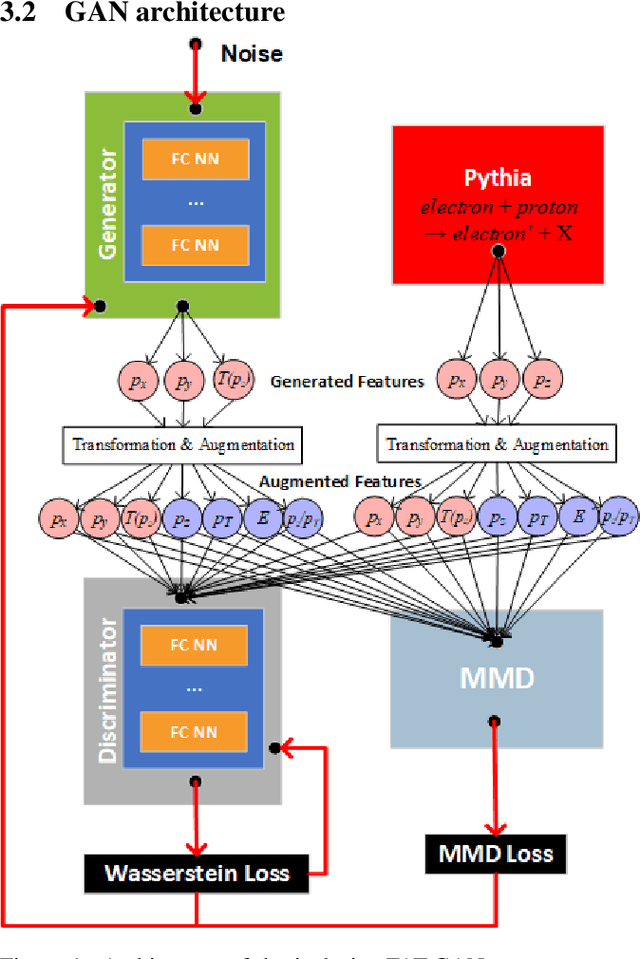
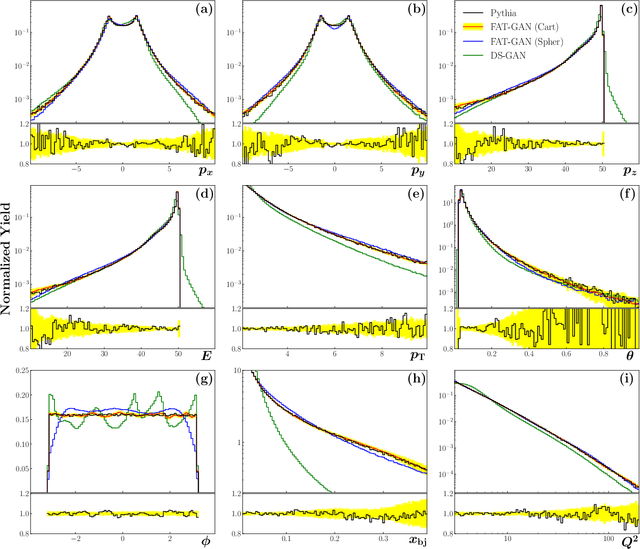
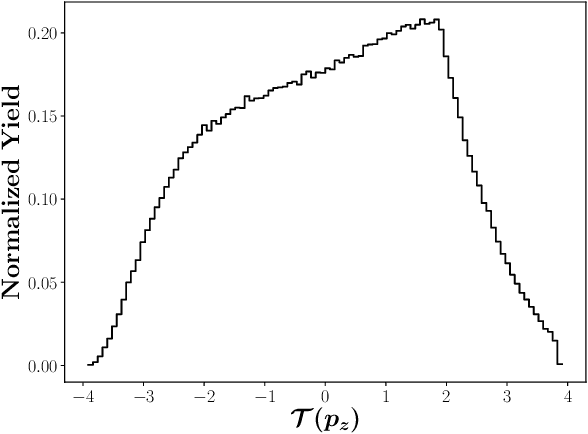
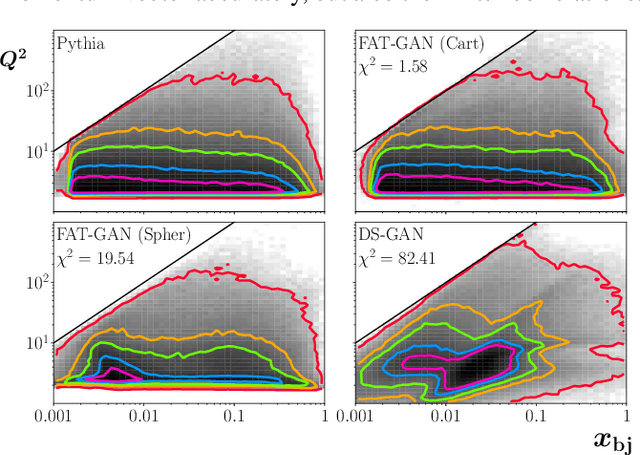
Abstract:We apply generative adversarial network (GAN) technology to build an event generator that simulates particle production in electron-proton scattering that is free of theoretical assumptions about underlying particle dynamics. The difficulty of efficiently training a GAN event simulator lies in learning the complicated patterns of the distributions of the particles physical properties. We develop a GAN that selects a set of transformed features from particle momenta that can be generated easily by the generator, and uses these to produce a set of augmented features that improve the sensitivity of the discriminator. The new Feature-Augmented and Transformed GAN (FAT-GAN) is able to faithfully reproduce the distribution of final state electron momenta in inclusive electron scattering, without the need for input derived from domain-based theoretical assumptions. The developed technology can play a significant role in boosting the science of the Jefferson Lab 12 GeV program and the future Electron-Ion Collider.
 Add to Chrome
Add to Chrome Add to Firefox
Add to Firefox Add to Edge
Add to Edge